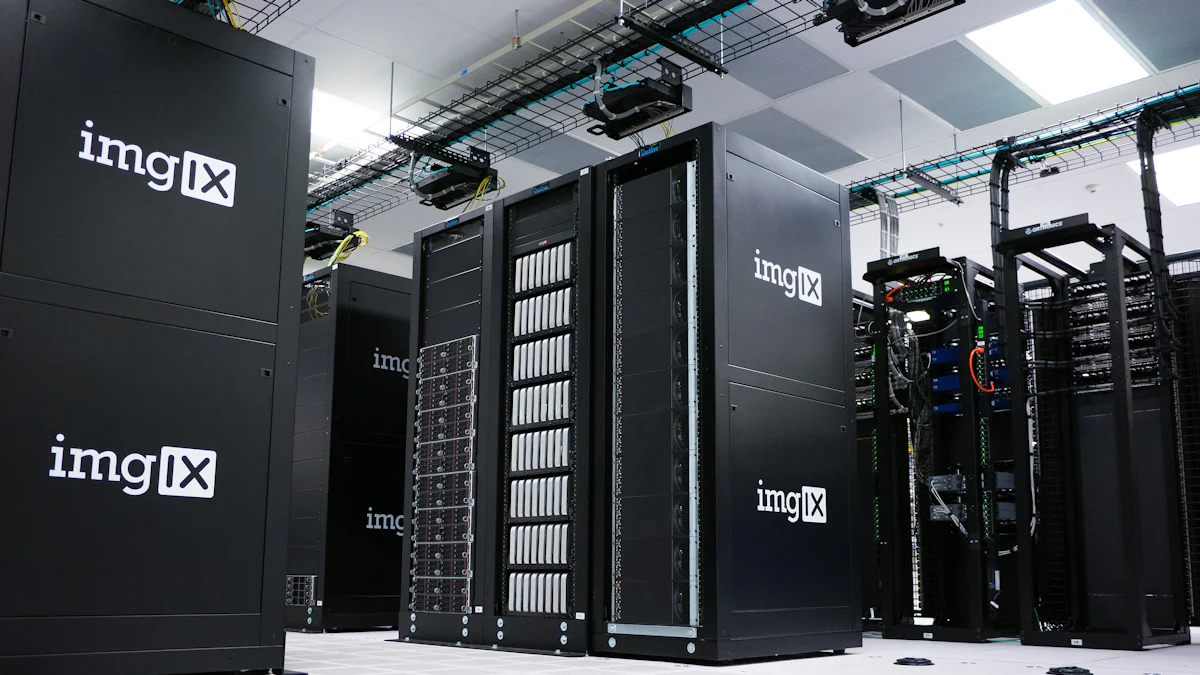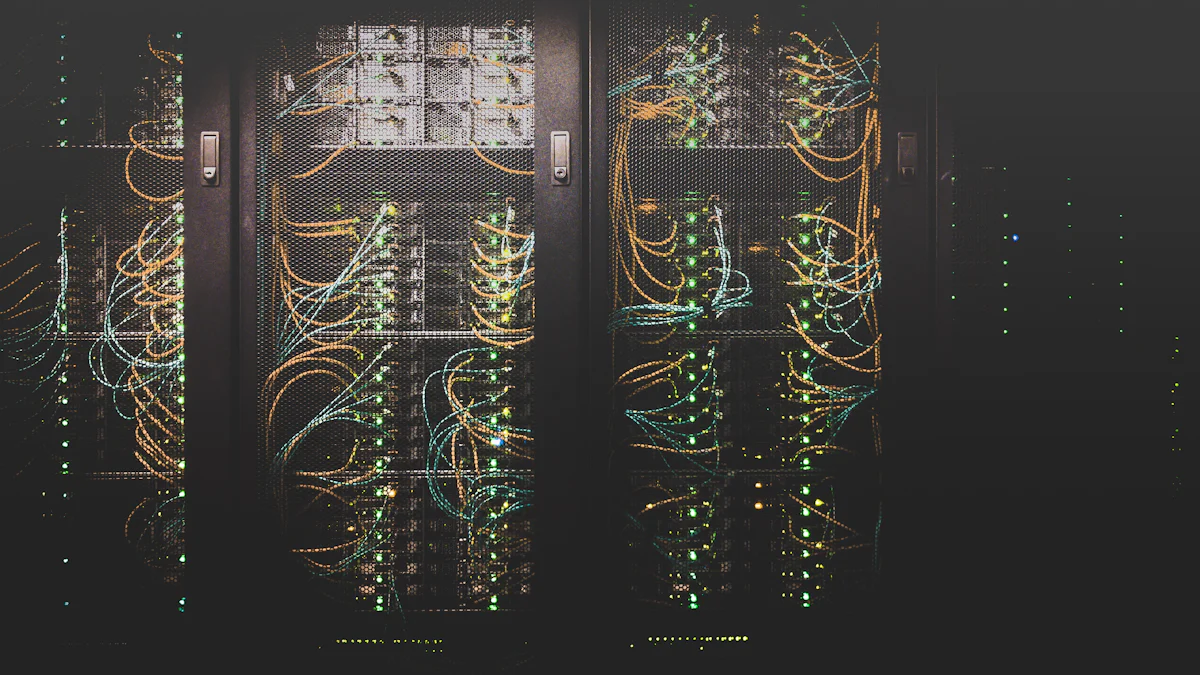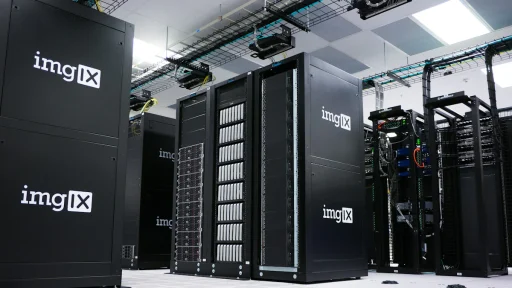

Data center and colocation services present a comprehensive solution for businesses aiming for secure and efficient infrastructure. By utilizing a colocation data center, companies can rent space for their servers and networking equipment within a third-party facility. This arrangement provides premium data center and colocation services, ensuring optimal performance and security. Colocation data centers are equipped with advanced cooling systems, power redundancy, and robust physical security measures. The global data center and colocation market is experiencing rapid growth, with a projected compound annual growth rate of 14.2% through 2030. Businesses are increasingly turning to data center and colocation solutions to fulfill their needs for reliable and scalable infrastructure.
Understanding Colocation Data Centers
Definition and Purpose
What is a Colocation Data Center?
A colocation data center serves as a facility where businesses can rent space to house their servers and networking equipment. The colo data center architecture provides essential services such as power, cooling, and network connectivity. Businesses benefit from the data center colocation facility by avoiding the capital expenses of building and maintaining their own infrastructure. The colo offers a secure environment with advanced security measures to protect sensitive data.
Purpose and Functionality
The primary purpose of a colocation data center is to provide a reliable and scalable environment for IT infrastructure. Companies use colocation data services to ensure high levels of uptime and performance. The colo supports businesses by offering redundant power systems, backup generators, and multiple network connections. These features enhance the reliability of the data center. Colocation allows organizations to focus on their core operations while the colo manages critical systems.
Types of Colocation Data Centers
Retail Colocation
Retail colocation caters to businesses that require smaller spaces for their IT equipment. The colo data center offers individual racks or cabinets for rent. This type of colocation data service suits small to medium-sized enterprises. The data center colocation facility provides shared resources, including power and cooling, which helps reduce costs. Retail colocation offers flexibility and scalability for growing businesses.
Wholesale Colocation
Wholesale colocation targets larger enterprises with significant IT infrastructure needs. The colo data center provides entire suites or large spaces for rent. This option benefits companies that require extensive data center infrastructure management. The colo offers dedicated resources, ensuring high levels of security and performance. Wholesale colocation enables businesses to scale their operations efficiently.
Benefits of Colocation Data Centers
Cost Efficiency
Shared Infrastructure Costs
Colocation data centers provide significant cost savings through shared infrastructure. Businesses typically avoid the expenses associated with building and maintaining a private data center. Colocation services include access to shared power, cooling, and network resources. This setup allows for efficient use of energy and facilities. Colocation offers space that businesses can utilize without incurring high capital costs. The shared model ensures that companies only pay for the resources they need. This approach optimizes data center management and reduces unnecessary expenditures.
Reduced Capital Expenditure
Colocation services offer reduced capital expenditure by eliminating the need for upfront investments in infrastructure. Businesses avoid the financial burden of constructing and equipping a data center. Colocation data centers provide a ready-made environment with all necessary facilities. This arrangement allows companies to allocate resources to other critical areas. The cost-effective nature of colocation services enhances business efficiency. Companies can scale their operations without significant financial strain. The flexibility of colocation data center models supports growth and expansion.
Enhanced Security and Reliability
Physical Security Measures
Colocation data centers maintain robust physical security measures to protect sensitive data. Facilities typically employ advanced security protocols, including surveillance cameras and biometric access controls. These measures ensure that only authorized personnel can access the data center. Colocation centers maintain strict security standards to safeguard client data. The integration of hybrid data center security further enhances protection. Businesses benefit from the peace of mind that comes with secure data center infrastructure management.
Redundancy and Uptime
Colocation data centers provide redundancy and high uptime levels, ensuring reliable service. Facilities incorporate backup power systems and redundant network connections. This setup minimizes the risk of downtime and data loss. Colocation data centers offer integrated data center management solutions that enhance reliability. The use of energy-efficient systems contributes to sustainable operations. Colocation services ensure that businesses maintain continuous access to their data. The commitment to data center tier standards guarantees optimal performance.
Comparisons with Other Data Center Solutions


Colocation vs. Cloud Data Centers
Cost Comparison
Colocation offers a cost-effective solution for businesses seeking to manage their infrastructure. Companies can rent Rackspace and utilize shared resources, which reduces expenses. Colocation eliminates the need for significant upfront investments in hardware. Businesses benefit from lower CAPEX by avoiding the costs associated with building a private data center. Cloud solutions, however, operate on a subscription model. Companies pay for services based on usage. This model eliminates hardware costs but may lead to higher long-term expenses. Rackspace Managed Colocation provides a balance between cost efficiency and control over infrastructure.
Flexibility and Scalability
Colocation data centers offer geographic flexibility. Businesses can choose locations that align with their operational needs. Colocation facilities provide scalability by allowing companies to expand their Rackspace as needed. This flexibility supports business growth without significant disruptions. Cloud solutions, on the other hand, offer software-based scalability. Companies can quickly adjust resources based on demand. The Cloud provides a flexible environment for businesses with fluctuating needs. Both Colocation and Cloud solutions offer unique advantages in terms of scalability.
Colocation vs. On-Premises Data Centers
Maintenance and Management
Colocation reduces the burden of maintenance and management for businesses. Facilities handle essential services such as power, cooling, and security. Companies can focus on core operations while the colo manages infrastructure. Rackspace Managed services enhance efficiency by providing expert support. On-premises data centers require significant resources for maintenance. Businesses must invest in personnel and equipment to ensure smooth operations. Colocation offers a more streamlined approach to infrastructure management.
Infrastructure Control
Colocation provides businesses with complete control over their servers and equipment. Companies maintain ownership of their hardware while benefiting from shared facilities. Rackspace allows for customization and configuration based on specific needs. Tier III data centers ensure high levels of reliability and performance. On-premises solutions offer similar control but demand higher investments in infrastructure. Colocation strikes a balance between control and cost-effectiveness. Certification standards such as Tier III guarantee quality and reliability in colocation facilities.
Key Considerations for Choosing a Colocation Data Center
Location and Accessibility
Proximity to Business Operations
Proximity plays a crucial role in selecting a colocation data center. Businesses should choose a location near their primary operations. This choice reduces latency and improves data transfer speeds. A nearby data center allows for easier access to equipment and personnel. Quick access ensures efficient management and maintenance of servers. Proximity also aids in faster response times during emergencies.
Disaster Recovery and Risk Management
Colocation facilities must offer robust disaster recovery plans. These plans protect data from natural disasters and technical failures. Facilities should have redundant systems to ensure data safety. Risk management strategies include backup power and cooling systems. These features maintain operations during unexpected events. Colocation services provide cooling solutions to prevent overheating. Effective risk management minimizes potential downtime and data loss.
Service Level Agreements (SLAs)
Uptime Guarantees
Service Level Agreements define the performance standards of a colocation provider. Uptime guarantees are a critical component of these agreements. Providers must ensure high availability of data center services. Uptime guarantees typically range from 99.9% to 100%. Reliable uptime ensures continuous access to data and applications. Businesses should verify the provider’s track record for meeting these guarantees. Consistent uptime enhances business continuity and customer satisfaction.
Support and Maintenance Services
Colocation providers offer support and maintenance as part of their services. Expert technicians handle routine checks and emergency repairs. Providers ensure optimal performance of cooling and power systems. Regular maintenance prevents equipment failures and data loss. Support services include guidance on system configuration and optimization. Colocation Provider states, “Colocation customers are also typically responsible for the configuration and management of their systems.” Providers assist customers in maximizing the use of data center resources. Comprehensive support services contribute to efficient data center operations.
Colocation offers businesses a scalable and cost-effective solution for IT infrastructure needs. Companies can expand their networks without investing in additional hardware or real estate. Colocation provides flexibility and security, allowing organizations to adapt their IT infrastructure to changing demands. Businesses should consider colocation for future data center needs. The Check Point data center ensures robust security measures. Point data center security offers peace of mind for sensitive data. Check the benefits of colocation to make informed decisions. Check Point solutions enhance business operations. Check the options available to optimize infrastructure.






